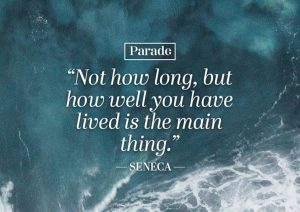《自律養生實踐家之旅296》 有限的資源

一天只有二十四小時,一生頂多百年左右。生命的有限,藏著深遠的哲理:時間要善用,生命要珍惜。
關於時間與生命,我們長期受一種錯覺支配:不是覺得「還有很多時間」,就是忙於「永遠不夠用」。潛意識與意識,往往抱持著完全不同的觀點。
宇宙蘊藏無窮資源,而此刻的我們,如何善用這些豐盛的供給?如何在有限之中創造無限的影響?答案早已內嵌在生命的節奏裡。
如今,我的生命藍圖只剩下兩個維度:「該做的事」與「不該做的事」。而所謂「該做的事」,就是即刻去做的事。
我把「等我有錢」與「等我有空」從夢想清單中移除,那些遙想未來的計畫會不會實現,全看它們是否能成為現在的「該做之事」。
如何善用每一天的每一分鐘,如何在有限的餘生裡完成此生最重要的任務,這是我與自己深度對話的課題。
「有錢」與「有時間」在人生的某些階段曾經是同一件事,兩者都來自一種價值觀:有錢可以換時間,有時間可以創造金錢。
這兩者曾是我心中巨大的執念,如今領悟到,有錢未必買得到時間,而時間也不該單純拿來換錢。
金錢,是有限的概念,還是無限的存在?曾幾何時,「越多越好」成為我們對金錢的普遍想像,而這樣的慾望,和對「越快越好」的治療期待如出一轍。
每個人對於金錢與時間的認知,背後都蘊含著價值判斷,而我,感謝人生際遇帶來的覺悟。
在我的生命旅途中,「做一天的事換一天的收入」與「做一天的事累積一天的價值」,這兩種思維在某一刻交錯。回顧過去,驚覺自己幾乎荒廢了半生。
往後每一次人際互動,我幾乎都能從對方身上感受到某種安全感的束縛。無論是不快樂,還是不健康,都與面對「有限時間與有限能力」的焦慮息息相關。
竟然,連「飢餓感」都被納入了恐懼的控制範疇。我們所處的世界,幾乎被「安全感」所綁架,像是在公有巷弄空間擺盆栽搶占車位一樣荒謬。
當吃變成一種為安全感而做的行為,出門工作也成為對抗焦慮的手段,我們的一生,活在狹隘的框架裡,疾病,自然也就成為預期的結果。
人們因為「必須要有錢」而找工作,被錄用時很開心,熟悉工作後卻又失去快樂。因為,那份來自內在的焦慮與永不滿足的慾望,從未消失。
這與貧富無關,富人也會在一場揮霍後進入深層的空虛,那不是物慾的問題,而是來自心靈的警訊。
進一步思考:一輩子沒出過國的人,與每個月都出國旅行的人,兩者之間或許有財富落差,但真正的關鍵,仍在於他們針對「財富」的定義。
我的父親一生懸壺濟世,最終仍難逃病魔摧殘。他病榻前與往生後的面容對照,讓我深深體悟,那種安詳的表情,才是活著的時候必要的呈現。
說到這裡,也該為「時間不該用來賺錢」這句話補充一些說明。其實,賺錢一直都在發生,重點是:你在工作的同時,是否也得到了學習與成長?是否也感受到快樂與充實?
人生有限,所結識的人脈也有限,但我們可以在有限的人脈中創造出無限的價值。因為真誠可以跨越疆界,感動可以延續傳承,而有意義的價值可以無限延展。
其實,安全感並不是錯誤的價值,而是需要擺對位置。我們可以將「恐懼的安全感」轉化為「幸福的安全感」。
在與身體的互動中,我深刻體會到這一點。食物的確會帶來安全感,但「不吃」,在身體看來,也輸送著一種更深層的安定力量。
當我們將責任擺在前方,並理解適當的禁食其實是身體得以除垢與修復的契機,那種安全感,絕對凌駕「吃」所帶來的短暫滿足。
冰箱裡滿滿的食物,也許帶來表面的安心,但經驗告訴我:那種安全感,最終交給身體的,是負擔與困惑。
在享樂的時候,想到善後的確掃興,但我們終究得面對。最好的狀況,是不必善後,因為每一步行動早已是超前部署。
人生有限,生命卻無限。這看似矛盾的真理,其實就是:在有限的資源中,創造無限的傳承。
生命,不斷在講述這件事。
(不是活了多久,而是活得多好,才是最重要的。)
Limited Resources
There are only twenty-four hours in a day, and a lifetime rarely exceeds a hundred years. The finite nature of life contains a profound philosophy: time must be used wisely, and life must be cherished.
When it comes to time and life, we’re often ruled by an illusion—either the belief that “there’s still plenty of time,” or the feeling that time is “never enough.” Our subconscious and conscious minds often hold opposing views.
The universe is abundant with resources. At this moment in our lives, how do we make good use of this abundance? How do we create infinite impact within our limited span? The answers are already embedded in the rhythm of life itself.
Today, my life blueprint has been reduced to just two dimensions: “what must be done” and “what must not.” And what must be done—should be done now.
I’ve removed “when I have money” and “when I have time” from my dream list. Whether those imagined future plans come true now depends solely on whether they qualify as the things that must be done today.
How to use each minute of each day wisely, how to fulfill the most essential mission of this life within the time that remains—this has become the core of my deep conversation with myself.
At certain stages in life, “having money” and “having time” seemed to be the same thing. Both are rooted in one belief: that money can buy time, and time can generate money.
These two concepts once gripped me tightly. But now I realize—money can’t always buy time, and time shouldn’t merely be used to earn money.
Is money a limited concept, or an infinite force? At some point, “the more the better” became a common belief. This desire mirrors the modern obsession with “faster is better” in medical treatments.
Everyone’s understanding of money and time reflects their value system. And for me, I’m grateful that life’s twists and turns brought me to this awakening.
Along my journey, two mindsets have crossed paths: “work a day to earn a day’s income,” and “work a day to accumulate a day’s worth of value.” Looking back, I realized—I had almost wasted half a lifetime.
Now, in almost every interpersonal encounter, I can sense a kind of bondage to safety in others. Whether it’s unhappiness or poor health, they are deeply linked to anxiety about our limited time and abilities.
Even hunger has become something to fear. Our world is nearly held hostage by the idea of “security”—as absurd as placing flower pots in alleyways to reserve parking spots.
When eating becomes a ritual to feel secure, and going to work a way to combat anxiety, our lives fall into a narrow framework. Illness, then, becomes a predictable result.
People seek jobs out of the belief that they “must make money.” They’re happy when hired, but soon lose that joy once the job becomes familiar—because the inner anxiety and unquenchable desires never left.
This isn’t about poverty or wealth. Even the rich may plunge into emptiness after indulgence. It’s not a matter of materialism—it’s a signal from the soul.
Go deeper: someone who’s never left their home country, and someone who travels abroad monthly—there may be a wealth gap, but the real difference lies in how they define “wealth.”
My father spent his life healing others, yet in the end, could not escape illness. The contrast between his face during sickness and after passing taught me something profound—that peaceful expression should belong to the living.
This brings me to clarify the idea that “time shouldn’t be spent earning money.” In fact, making money is inevitable. The point is: while working, are you also learning and growing? Do you feel joy and fulfillment?
Life is finite, and so are the people we meet. But we can create infinite value from limited connections. Sincerity transcends borders, genuine emotion can be passed down, and meaningful contributions can expand indefinitely.
Security, in itself, isn’t wrong—it simply needs to be placed in the right context. We can transform “fear-driven security” into “joy-driven security.”
I’ve come to understand this deeply through interaction with my body. Yes, food brings a sense of safety. But not eating can deliver a more profound kind of peace.
When we place responsibility ahead of indulgence, and understand that fasting enables the body to cleanse and repair, that safety surpasses the fleeting comfort of eating.
A full fridge may offer surface-level reassurance, but experience has shown me—it often leads only to physical burden and internal confusion.
Sure, thinking about the aftermath of pleasure can kill the mood. But we must eventually face it. The ideal is to act in such a way that no aftermath is needed—because every step was part of a mindful plan.
Life is limited. But the essence of life is not. This seemingly paradoxical truth holds: from limited resources, we can create infinite legacy.
And life, always, is quietly teaching us this lesson.


